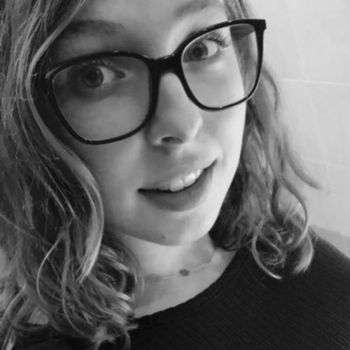No. 2 ranked U.S. law school study finds conservative profs shunned by elite schools
A study by a researcher at Stanford University , the No. 2 ranked law school in the U.S., finds that conservative or libertarian law professors are discriminated against largely at top-ranked law schools when compared with their liberal and moderate peers.
James C. Phillips, a non-resident Fellow with the Constitutional Law Center at Stanford Law School, recently published a study which concludes that conservatives and libertarian law professors face discrimination from elite, top-tier schools compared to liberal or moderate professors.
The study, “Testing a Beckerian-Arrowian model of political orientation discrimination on the U.S. law professor labor market: Measuring the ‘rank gap”, 2001-2010,” sheds light on the suspicion many conservatives in the labor market have, “am I being discriminated against?”
The study finds that “conservative and libertarian law professors are underrepresented in top-tier legal academia, whether compared to the American population overall, those who graduate from law school, or elite lawyers who look most like law professors,” later adding that the issue is likely “not discrimination against conservatives and libertarians so much as discrimination against anyone who is not liberal.”
“To the extent the legal academy is concerned about diversity, given the significant role politics plays in the law, few types of diversity could be more beneficial to legal education than increased political diversity among law school faculties,” Phillips surmises. “Ironically, liberal students and law professors will arguably benefit the most if the percentage of conservative and libertarian faculty members increases.”
Phillips argues that, in some academic fields, graduates are “less harmed” by a lack of intellectual diversity, but for law school graduates, the inability to “candidly and accurately assess the weaknesses in their own views and the strengths in opposing views” is akin to “professional suicide.”
“Law school graduates who are ill-equipped to make persuasive arguments in front of half of the judiciary are ill-equipped to be lawyers,” the study reads. “Likewise, an environment that is subtly or openly hostile to or ridicules conservative or libertarian perspectives will have a chilling effect in the classroom, harming students of all political views.”
The study finds that, when analyzing the hiring practices of law schools between 2001 and 2010, three categories of professors, “liberal,” “unknown,” and “conservative/libertarian,” appear to be unevenly distributed, “indicating that law schools were not equally hiring across rankings over the decade studied. But the distribution of conservatives/libertarians and liberals was relatively similar.”
Phillips argues that having a lack of politically diverse professors has a direct impact on law students who go on to affect legal policy.
“What people learn in law school does influence their real-world views and decisions, particularly in shaping domestic and foreign policy,” the study reads. “And many legal doctrines or policy prescriptions have had their genesis in a law review article promulgated by a legal academic.”
Phillips goes on to detail that the “discrimination (rank gap) is not uniform.”
“This discrimination costs non-liberals about 12-13 ranks in the school they are hired at, though this difference is not uniform across school ranks and differs some for conservatives/libertarians as compared to unknowns/moderates.”
“Conservatives and libertarians, as the viewpoint minority in the law professor labor market—a viewpoint minority, rightly or wrongly, that may perceive hostility towards their views—are more likely to conceal their political orientation than are liberals, the viewpoint majority,” Phillips points out. “Thus, the study may underestimate the percentage of conservatives and libertarians in legal academia because they are more likely to conceal their political orientation for professional reasons.”
However, Phillips later notes that, “based off of voter registration records, it does not appear that conservatives/libertarians conceal their political orientation any more than liberals do.”
The data used was collected by undergraduate student volunteers at UC Berkeley who received research credit. The study, which investigates ten years of employment records at various law schools across the country, took into account each year’s new hires, before establishing their political affiliation.
The researchers took into account 28 variables, including, the professor’s name, gender, race, age, LGBT identity, hiring institution, earned degrees, professional accomplishments, and prior work history.
The demographics were gathered by reviewing “tenure-track” professors’ campaign donation history and curriculum vitae (resume) to assess if the professor worked “for organizations with political leanings, as well as political campaign or experience working in presidential administrations.”
If those documents did not produce enough information, the researchers also took into account professors’ publication history to determine if any were “clearly” conservative or liberal to access likely political orientation.
Each professor was researched by two independent students, whose assessments were then averaged to ensure an accurate assessment.
“This study will not claim to measure the true political orientation of individuals, but rather that which is being signaled,” the author notes. “This means that two individuals could be equally conservative, but the one who signals conservativeness will be labeled as a signaling conservative and the other will be labeled as an unknown.”
“An echo chamber is created when most everyone has the same fundamental worldview, or at least there is a dominate [sic] orthodoxy,” Phillips told Campus Reform. “You could see it in the Obamacare litigation. The legal academy found laughable the thought that Obamacare violated the Commerce Clause. But that argument ended up getting five votes at the Supreme Court, even if the law was upheld on other grounds.”
“Finally, it hurts laws and society,” Phillips added. “No one political ideology has a monopoly on truth. Through the rough and tumble of the marketplace of ideas, legal scholarship, which often turns into laws via legislatures or courts, can be refined—the kinks can be worked out, so to speak. Without this, legal scholarship, and thus our laws, are poorer and can fail those they are meant to serve.”
Follow the author of this article on Twitter: @Grace_Gotcha

